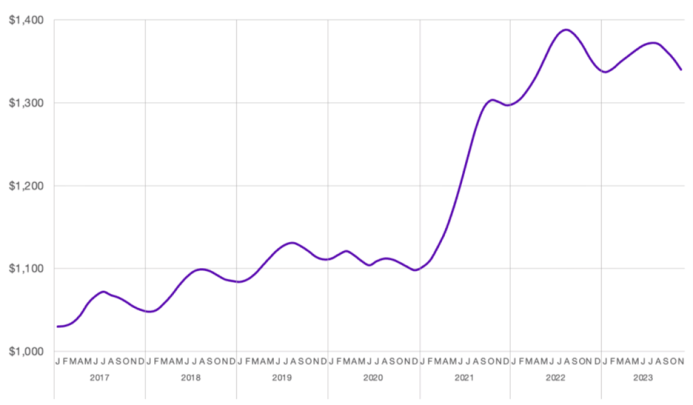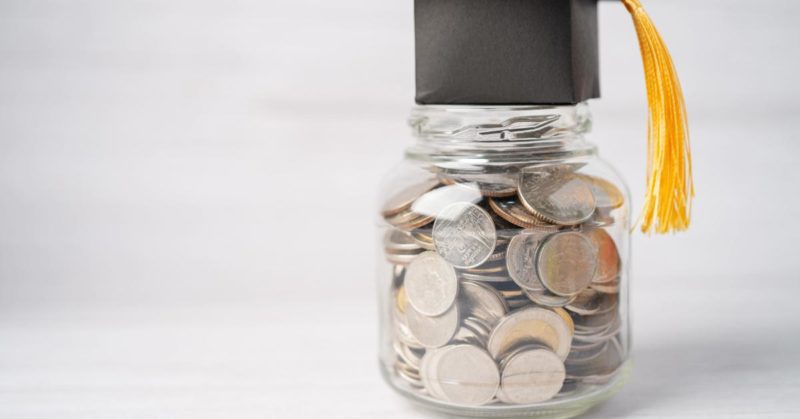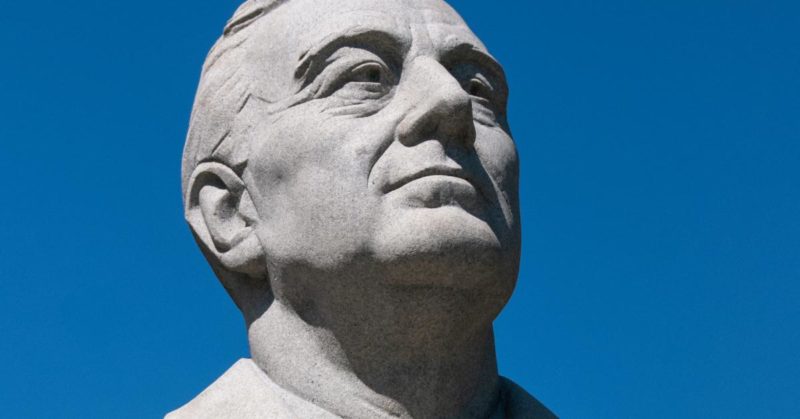Category Archive: 6b.) Mises.org
The Economic Wisdom of Antony C. Sutton’s The War on Gold
Economist Antony C. Sutton understood one of the most fundamental economic truths: gold is money. Thorsten Polleit reviews Sutton’s classic book, The War on Gold.
Original Article: The Economic Wisdom of Antony C. Sutton’s The War on Gold
Read More »
Read More »
A Free and Open Internet Is a Threat to the Establishment
Using the rhetoric of “protecting democracy,” American ruling elites have tried to censor the internet because they don’t like the results of democracy when information no longer is filtered by the political classes.
Original Article: A Free and Open Internet Is a Threat to the Establishment
Read More »
Read More »
Government Prohibitions on Raw Milk Are Ignorant and Dangerous
Since government regulates nearly everything, it is not surprising that regulations often prohibit the sale and consumption of raw milk. Like many other regulations, these prohibitions reflect political favoritism, not health science.
Original Article: Government Prohibitions on Raw Milk Are Ignorant and Dangerous
Read More »
Read More »
America’s Fiat Money Gestapo: The Untold History of the Secret Service
There is an untold story in American monetary history. Some are reluctant even to discuss it.
I’m referring to the US Secret Service’s very own role in the destruction of sound money in America.
As constitutional, sound money in the form of physical gold and silver coins—whether minted privately or not—became an annoying impediment to expanding the size and power of the federal government, central planners began circulating unbacked paper proxies...
Read More »
Read More »
Negative Leverage: The Fed’s Latest “Gift” to Apartment Investors
The Federal Reserve’s inflation of the money supply and interest rate manipulation distort capital markets through, among other things, the creation of asset bubbles. As the cost of borrowing decreases and cheap money floods an economy, speculation in capital markets increases, leading to prices unmoored from fundamentals.
Underlying these asset bubbles is a certain investor psychology—one based on expectations, encouraged by Fed actions over the...
Read More »
Read More »
Wonka: A Tale of Evil Businessmen and Cronyism
Wonka (2023) is a prequel film to the beloved story Charlie and the Chocolate Factory by Roald Dahl. Wonka tells the story of a young Willy Wonka, an up-and-coming chocolate salesman and magician, who challenges a chocolate cartel’s dominance.
As one could imagine, the film is full of scenes that cast private enterprise in a negative light. The main villains are stereotypical movie businessmen who will do anything, even murder, to achieve their...
Read More »
Read More »
Headline Math, Women’s Wages, and a Very Bad Deal in Higher Education
Headline math is a simple percentage expressed as a fact without context. Its design is to create an emotional response, support an opinion, or generate a click past the paywall. Once articulated, it exists in speech as a noun. W. Brian Arthur’s paper “Economics in Nouns and Verbs” explains the use of nouns to express a conclusion as fact, excluding further discussion. Student loan statistics for women are presented as facts, needing no further...
Read More »
Read More »
It Began with Carl Menger: The Austrian Intellectual Triumph
Near the end of the nineteenth century, the European intellectual scene witnessed a remarkable theoretical contest known as the “battle of methods,” or in German, Methodenstreit. This intellectual clash stood out due to the confrontation between the precepts of methodological and subjective individualization, equipped with a subjectivist and individualizing worldview of the method. It was represented by figures such as Carl Menger (considered the...
Read More »
Read More »
Do Destroyed Monuments Represent a Past Not Worth Defending?
Many cities and states in this country have been tearing down or destroying monuments because they represent part of a past that progressives and leftists believe should not have existed. Yet each time we tear down something, we potentially lose part of an important heritage.
Original Article: Do Destroyed Monuments Represent a Past Not Worth Defending?
Read More »
Read More »
Biden’s “AI Bill of Rights” May Just Be Another Censorship Plan
President Joe Biden is promoting his “AI Bill of Rights,” which looks to be an attempt to censor political opposition. Naturally, political and media elites are enthusiastically endorsing it.
Original Article: Biden's ""AI Bill of Rights"" May Just Be Another Censorship Plan
Read More »
Read More »
DC’s Debt Trap
Federal debt is soaring out of control, and perhaps it is not surprising that the CBO has not updated its forecasts with this debt uncertainty.
Original Article: DC's Debt Trap
Read More »
Read More »
Markets versus State Healthcare Systems: Some Points of Contention
Progressives claim that state-sponsored healthcare systems are superior to market-based systems. Their arguments don’t add up.
Original Article: Markets versus State Healthcare Systems: Some Points of Contention
Read More »
Read More »
Secession
This week's episode begins 2024 by looking at the growing political divide among the American people—and how to solve it.
Be sure to follow Minor Issues at Mises.org/MinorIssues.
Get your free copy of Murray Rothbard's Anatomy of the State at Mises.org/IssuesFree.
Read More »
Read More »
Claudine Gay, DEI, and the War in the Middle East
A little over six months ago, Claudine Gay was appointed president of Harvard University, the first black president of that now embattled institution. She recently resigned her post, only to retain a $900,000 salary as a professor. No doubt her appointment had more to do with the imperatives of an engulfing diversity, equity, and inclusion (DEI) agenda and less to do with the quality and volume of her scholarship, later found to be riddled with...
Read More »
Read More »
What Is Happening to College Sports?
On Monday night, January 8, the University of Michigan and the University of Washington football teams will vie for the collegiate national championship. While championships always bring excitement to fans and participants alike, this year’s game brings attention to major changes that have occurred in the National Collegiate Athletic Association Division I in the past few years involving both monetary payments and mobility for athletes.
While there...
Read More »
Read More »
The Bad News Hiding Behind the GDP and Jobs Numbers
Economist Daniel Lacalle joins Ryan and Tho to talk about how central banks are engineering more zombie companies, higher inflation, and a "private sector recession," all hiding behind misleading and bullish aggregate data.
Claim your free book: Mises.org/RothPodFree
Be sure to follow Radio Rothbard at Mises.org/RadioRothbard.
Radio Rothbard mugs are now available at the Mises Store. Get yours at Mises.org/RothMug
PROMO CODE:...
Read More »
Read More »
Murray Sabrin on Our Broken Medical System
Murray Sabrin joins Bob to discuss his upcoming online course on the economics of the US healthcare system, including practical solutions. The course begins in mid-January 2024.
Dr. Sabrin's New Online Course: Mises.org/HAP429a
IPAK-EDU.org is offering the following discounts:
50% off until Jan 6th with code: COUNTMEIN
25% off after January 6th with code: JACKSAYS75
Murray Sabrin on Our Broken Medical System...
Read More »
Read More »
Greenwashing: A Bridge between Austrians and Environmentalists?
Greenwashing is a relatively new term to describe false and misleading claims that a product or business practice has environmental benefits. The point is that companies can advertise their efforts as “green” while continuing various profitable activities that environmentalists consider “harmful,” gaming the system and profiting off well-intentioned, sustainably minded consumers.
The term was coined forty years ago by a student in response to a...
Read More »
Read More »
FDR against the Bill of Rights
In this week’s column, I’d like to raise two questions suggested by David Beito’s excellent book The New Deal’s War on the Bill of Rights, which I reviewed last week. First, how can it be that Franklin Roosevelt has acquired a reputation among leftist historians as a champion of liberty, with his internment of Japanese Americans during World War II regarded as an aberration, in the face of the manifold violations of civil liberties that occurred...
Read More »
Read More »
Why Argentina Needs Free Cities
As the libertarian anarchocapitalist Javier Milei ascends to the Argentinian presidency, the parting of the ominous clouds of socialism has brought about the rising sun of libertarianism on the South American continent. The Argentine legislative system, consisting of the Senate and the Chamber of Deputies, is designed to bolster democratic governance and accountability.
However, its inherent structure often leads to impasses, particularly with...
Read More »
Read More »




























